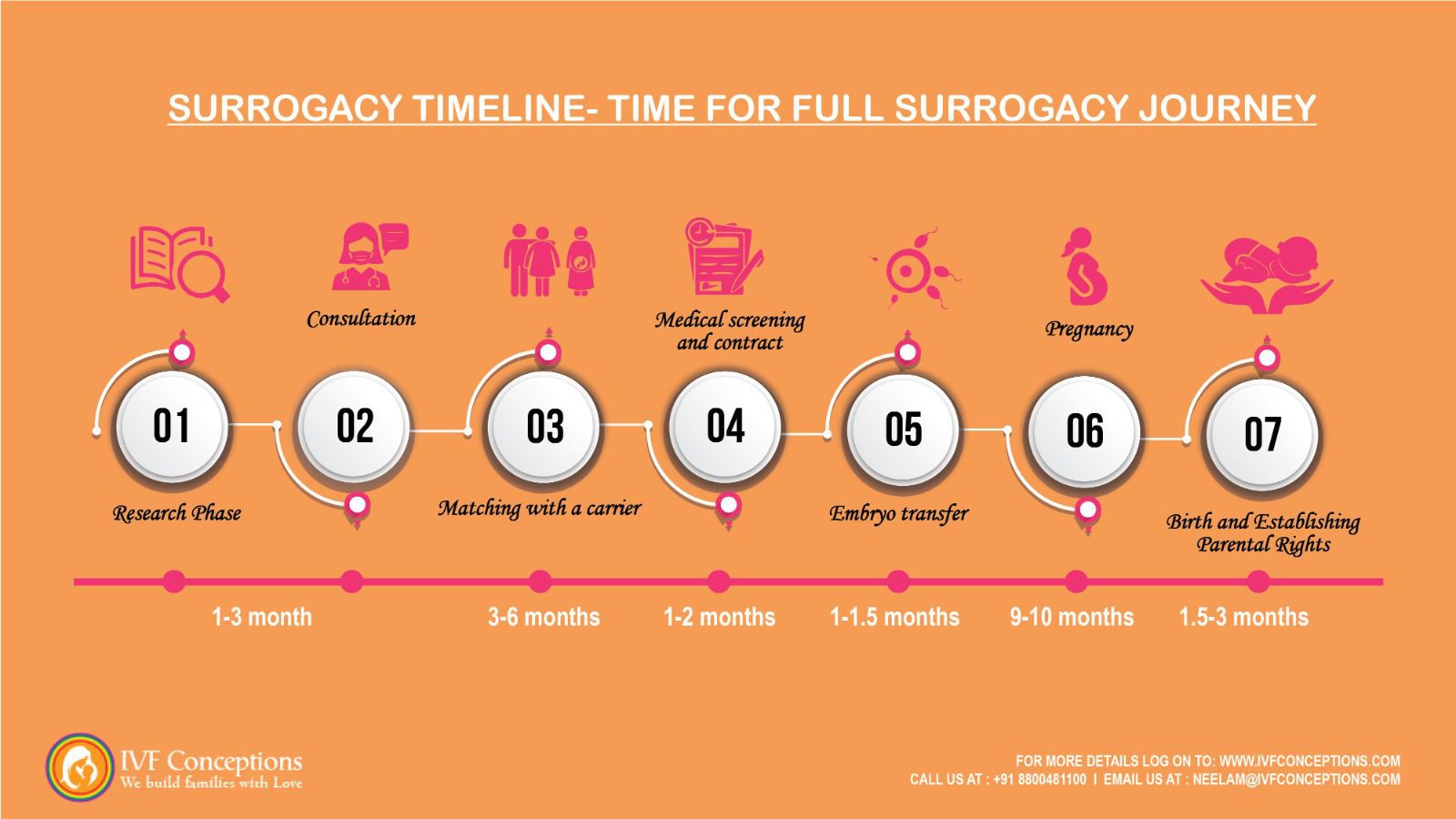Gestational Surrogacy In Virginia: Surrogacy Cost in Virginia

Despite being legal, surrogacy in Virginia is a family-building procedure that is subject to several laws. Although this procedure is permitted in this country, it favors married intended parents who have at least one genetic tie to the surrogate child.
Your Virginia surrogacy process will be slightly more challenging if you are an intended parent who doesn’t fit these requirements. Virginia surrogacy rules stipulate that intended parents must adhere to certain requirements and that surrogates cannot be paid for their services. As a result, all surrogacy cases in Virginia must be charitable and meet a medical need.
Although Virginia’s Assisted Conception Statute permits gestational surrogacy, the state’s surrogacy rules only apply to married couples and include stringent guidelines that must be followed both before and after the child is born.
Virginia does allow surrogacy agreements, but there are a lot of requirements. Before any medical procedures can start, a surrogacy contract can be approved by the local court; however, these contracts must contain home studies for both the intended parents and the surrogate, and parties must be present for a court hearing before a contract can be accepted.
Get in touch for a Free Surrogacy Consultancy:
📲 +91-8800481100 ( WhatsApp, Line, Viber)
 Key Highlights Of Gestational Surrogacy In Virginia
Key Highlights Of Gestational Surrogacy In Virginia
➔ Virginia allows surrogacy; however, there are a lot of requirements and restrictions. The severe rules and procedures that must be followed both before and after the baby is born are outlined in Virginia’s surrogacy laws, which are only applicable to married couples.
➔ The only compensation a surrogate may receive in Virginia is for medical and related costs. In Virginia, paying a surrogate a base salary is against the law.
➔ Virginia’s surrogacy regulations authorize traditional surrogacy as long as it complies with the rules outlined in the state statutes.
➔ Surrogacy contracts are legal under Virginia surrogacy law, and if the contract is subject to pre-approval, it follows that it is enforceable provided that it complies with the requirements set forth in the state legislation.
➔ In Virginia, second-parent adoptions are not yet permitted. To seek post-birth parentage orders in this state, a couple must be married.
➔ Unmarried couples could need to remarry in order to complete a stepparent adoption in Virginia, or they might need to go back to their home state to achieve a second-parent adoption.
➔ According to Virginia’s Assisted Conception Statute, a gamete donor is not the biological parent of a child who was conceived using their donated gamete.
Additional guides for surrogacy in the USA:
Surrogacy In the USA is Made Easy and Affordable.
How Much do Surrogacy Agencies Charge in the USA?
How Much Does Surrogacy Cost in USA ( 2023)?
Why USA Couples Should Do Surrogacy In Georgia, Europe?
Surrogacy Financing Options For Intended Parents
Why Surrogacy Costs So High And How To Manage It?

Surrogacy Laws In Virginia
Intended Parents who desire to have a child through surrogacy must be a married couple, in accordance with Virginia law. Unmarried couples may choose surrogacy, but only one of the biological parents may be included on the child’s birth certificate. To be granted legal parental rights, the other parent must adopt the child after birth.
Virginia surrogacy rules stipulate that intended parents must adhere to certain requirements and that surrogates cannot be paid for their services. As a result, all surrogacy cases in Virginia must be charitable and meet a medical need.
Surrogacy Agreement in Virginia
Surrogacy agreements are legal in Virginia, but they must adhere to all guidelines. Before a contract can be granted by the court, it must involve a home study for the prospective parents and the surrogate, and both parties must be present.
Additionally, as per Virginia surrogacy laws, these contracts must attest to the following:
➔ Intended parents and surrogates have complied with fitness requirements.
➔ The surrogate has at least one child and is healthy enough to carry another.
➔ The prospective mother can’t carry a child without endangering her physical or mental health or is infertile.
➔ Any child born through surrogacy must have at least one intended parent who is also the child’s genetic parent in order for a parentage order to be issued.
➔ Counseling has been provided to all parties
➔ even more
Before the medical procedure for surrogacy can start, surrogacy contracts need to be signed by both parties and approved by a judge.
Many intended parents decide to forgo the pre-approval court in favor of drafting their own contract, delaying the signing of the birth certificate amendment paperwork until at least the fourth day after the baby is born. They then submit a Surrogate Consent & Report Form to the Birth Registrar.
Virginia’s legal parental status | Virginia surrogacy laws
 In Virginia, courts do not give pre-birth orders, and married couples with at least one spouse who is genetically related to the kid are the only ones who can make use of the laws governing parentage orders.
In Virginia, courts do not give pre-birth orders, and married couples with at least one spouse who is genetically related to the kid are the only ones who can make use of the laws governing parentage orders.
The surrogate and her spouse (if applicable) are taken into consideration as the child’s legal parents in situations where the intended parents have no genetic connection to their offspring.
In this case, intended parents frequently have to finish an adoption after the baby is born.
Married intended parents are limited to using either the court-authorized model or the non-court-approved model to establish their legal parental rights rather than requesting a pre- or post-birth paternity order.
| Court Approved Model | Non-Court Approved Model |
| ➔ Prior to the surrogate’s IVF cycle, pre-approval from the court is necessary. | ➔ Demands that the prospective parents fill out a Surrogate Consent Form. |
| ➔ Demands home study | ➔ At least three days after the baby is born, submit the Report Form to the birth registry. |
| ➔ Calls for a court hearing |
|
How much does surrogacy cost in Virginia?
Every woman’s path to motherhood is unique. If you’re thinking about surrogacy as a way to start a family, you might be curious about how much it costs in Virginia.
Surrogacy costs often range between $100,000 to $210,000 in Virginia. This range is based on a variety of factors, including the type of surrogacy chosen, the required medical procedures, the surrogate’s compensation and expenses, legal fees, and any unforeseen costs.
Additional guides for surrogacy in the USA:
Surrogacy In the USA is Made Easy and Affordable.
How Much do Surrogacy Agencies Charge in the USA?
How Much Does Surrogacy Cost in USA ( 2024)?
Why USA Couples Should Do Surrogacy In Georgia, Europe?
Surrogacy Financing Options For Intended Parents
Why Surrogacy Costs So High And How To Manage It?
The principal costs that go into the final surrogacy price in Virginia
| EXPENSES | Cost of surrogacy in Virginia |
| Agency fees: This is the fee you would pay a surrogacy agency in order for them to help you find a qualified surrogate mother. Depending on the agency’s level of expertise and service quality, agency prices may change. | They normally range between $30,000 and $55,000 |
| Surrogate compensation: This is the fee you pay your surrogate mother in exchange for her time, work, and sacrifice in bearing your child. Surrogate pay varies according to the surrogate’s experience, location, preferences, and agreement with you. | It normally ranges from: $35,000 to $65,000
(if you choose a surrogate mother from a surrogacy-friendly state) |
| Medical Expenses: These are the costs imposed by the fertility center that manages your surrogate’s pregnancy and administers the IVF procedure. The price of medical treatment varies according to the clinic’s standing, location, and rate of effectiveness. The quantity of tests, transfers, and cycles that must be performed may also have an impact on them. | Medical bills might cost anywhere from $40,000 to $90,000 or more. |
| Egg Donation Fee: if you need to use donor eggs for surrogacy, the fee you must pay an egg donor. The fee for egg donation varies based on the egg donor’s background, where they live, their choices, and your agreement.
Additional costs for milestones such as screening tests, medicine injections, egg retrieval, and so on may be included in the egg donation charge |
which usually ranges from $10,000 to $20,000 |
| Legal Fees: Legal fees are what the lawyers that prepare and revise the surrogacy contract and establish parentage on behalf of you, your surrogate, and, if applicable, the egg donor, charge. The complexity of your case and state restrictions have an impact on the cost of legal representation. | Legal fees run anywhere from $25,000 to $35,000.
|

Surrogacy Process In Virginia
For a Non-Court-Approved Model
choose your agency
Find a compatible gestational carrier.
comprehensive medical and psychological assessments
Choose a lawyer and complete the legal agreement
IVF cycles with a surrogate start.
birth of the infant,
Post-Birth order
(Parentage must be verified in Virginia by submitting a permission and report form to the Department of Vital Records. 3 days following the baby’s birth.)
Given the simpler procedure and cheaper expense, almost everyone seeking surrogacy in Virginia employs the non-court-sanctioned technique for establishing paternity.
For a Court Approved Order
Choose your agency
Find a gestational carrier
Comprehensive evaluation of mental and physical health
Choose an attorney,
Finish the legal agreement,
Complete the home study, and request court approval.
Start the IVF cycle with a surrogate
Birth of the child and completion of the birth certificate
The steps involved in the surrogacy process, both legally and medically, can vary from case to case.

Finding A Surrogate Mother In Virginia | Become a gestational surrogate
intended parents in Virginia can pursue surrogacy while keeping the legal framework in mind. One of the most critical steps for successful surrogacy in Virginia is finding a surrogate mother. Finding a surrogate mother can be done in a number of ways, including:
➔ Fertility Clinic: Numerous reproductive centers provide internal surrogacy programs or can recommend suitable surrogates. A network of women who have shown interest in serving as surrogates is frequently present at these clinics.
➔ Surrogacy Firms Online: Intentional parents can connect with potential surrogates on several websites and forums. These platforms frequently include surrogate profiles, letting you select someone who matches your interests.
➔ Surrogacy Agencies: Matching intended parents with surrogate moms is a specialty of many surrogacy firms. These organizations handle the entire procedure, including the legal and medical aspects as well as matching, making it a practical and dependable choice.
➔ Online communities and classified ads for surrogacy: Connecting with possible surrogates can be facilitated by participating in social media groups, forums, and websites devoted to surrogacy. You can participate in discussions, place ads, and look for surrogates who fit your criteria on these networks.
➔ Altruistic Surrogacy: Family members or close acquaintances may occasionally offer to serve as surrogates. Altruistic surrogacy, in which the surrogate is someone you already know and trust, is what this practice is called.
Finding the ideal surrogate is a big step, so it’s important to go into the search with patience, empathy, and a clear knowledge of the duties and demands of surrogacy.
Conclusion
In conclusion, many intended parents and surrogates do not view surrogacy in Virginia as a feasible option because they do not meet the stringent requirements or because they desire more freedom and choice in their surrogacy journey.
Many Virginians choose to use surrogates from other states whose surrogacy laws are more understanding and uncomplicated. However, other legal steps and costs might also be required in order to prove parental rights and send the child back to Virginia.
If you’d like to learn more about IVF, Egg Donation, or surrogacy services globally, check out the rest of our website at IVF Conceptions. We offer legally secure and affordable surrogacy consulting services for FREE.
Get in touch for a Free Surrogacy Consultancy:
📲 +91-8800481100 ( WhatsApp, Line, Viber)
Related surrogacy Costs guides:
What is the average surrogacy cost?
How much does surrogacy cost in Ukraine?
How much does surrogacy cost in Georgia?
How much does surrogacy cost in India?
What is the Surrogacy Cost in Colombia?
What is Surrogacy cost in Mexico?
What is surrogacy cost with family members?
 Frequently Asked Questions on Becoming a Surrogate in Virginia
Frequently Asked Questions on Becoming a Surrogate in Virginia
1. What is surrogacy in Virginia?
Surrogacy in Virginia refers to the process where a woman, known as a surrogate, carries and delivers a child for another person or couple, known as intended parents, who will then become the child’s legal parents.
This can be achieved through gestational surrogacy, where the surrogate carries an embryo created using the intended parents’ genetically related material, or through traditional surrogacy, where the surrogate is genetically related to the child.
2. What are the surrogacy laws in Virginia?
Virginia has specific laws governing surrogacy arrangements, including the legal requirements for a surrogacy contract and the establishment of parental rights. It’s important to understand Virginia surrogacy laws and seek legal advice to ensure compliance with all regulations during the surrogacy process.
3. How can someone become a surrogate in Virginia?
To become a surrogate in Virginia, individuals must meet certain eligibility criteria, such as age, health, and previous pregnancy history. Additionally, prospective surrogate mothers in Virginia must navigate the surrogacy legal requirements and typically work with an agency to guide them through the surrogacy journey and match them with their intended parents.
4. What is the surrogacy process in Virginia?
The surrogacy process in Virginia involves several steps, including finding a suitable gestational surrogate, entering into a surrogacy contract, undergoing IVF to create embryos, and ensuring compliance with Virginia’s assisted conception statute. The process may also involve the selection of an egg donor or sperm donor, particularly in cases where the
FAQs for surrogacy in the USA
 Q1. What is the process of surrogacy in the USA for intended parents?
Q1. What is the process of surrogacy in the USA for intended parents?
Ans. The surrogacy process in Virginia for intended parents involves multiple steps, starting with a consultation to discuss your story and questions. Working with an experienced agency Surrogacy provides guidance through milestones like choosing an agency, finding a surrogate, medical screening, and legal contracts.
Q2. How much does surrogacy in the USA cost?
Ans. The cost of surrogacy in the USA varies depending on the program you choose. The cost of surrogacy starts at $150,000 to $200,000 based on the specific services needed and the compensation of the surrogate mother and egg donor. For low-cost surrogacy, it is advised to consider “independent surrogacy or private surrogacy”, which costs less but requires more time and management.
Q3. What are some affordable surrogacy options?
Ans. Affordable surrogacy options are:
- Opting for independent surrogacy arrangements.
- Using a surrogate mother within the family or friend circle.
- Considering the international surrogacy countries with affordable, low-cost surrogacy programs like Mexico, Colombia, Argentina, Georgia, and Ukraine.
Q4. What are the requirements for becoming a surrogate mother in the USA?
Ans. The requirements for becoming a surrogate mother are:
- To become a surrogate mother, you must meet certain criteria.
- You should have delivered a child of your own and be parenting at least one child.
- Uncomplicated pregnancies and deliveries are necessary, as documented by medical records.
- Age requirements are between 21 and 44 years old.
- The Body Mass Index (BMI) is typically no higher than 33.
- Surrogates should be citizens, legal residents, or legal immigrants of the United States.
- medically and psychologically in sound condition.
Q5. Can you help us find a low-cost surrogate mother?
Ans. Yes, we have been working in the international surrogacy domain for 13 years and have good networks of fertility clinics and surrogacy agencies globally that are trusted to offer world-class services. We have long expertise and experience in the best and most legal international surrogacy countries.
Disclaimer:
All legal information on this website is intended only as a guide and is not a replacement for the opinions of licensed legal professionals/Medical professionals. Some information may have changed since the time of publication. We advise you to consult a licensed attorney/Medical expert with authority in fertility/surrogacy processes.
Reference used:
- American Society for Reproductive Medicine (ASRM)
https://www.asrm.org - Resolve: The National Infertility Association
https://resolve.org - European Society of Human Reproduction and Embryology (ESHRE)
https://www.eshre.eu - Society for Assisted Reproductive Technology (SART)
https://www.sart.org

 Key Highlights Of Gestational Surrogacy In Virginia
Key Highlights Of Gestational Surrogacy In Virginia Frequently Asked Questions on Becoming a Surrogate in Virginia
Frequently Asked Questions on Becoming a Surrogate in Virginia